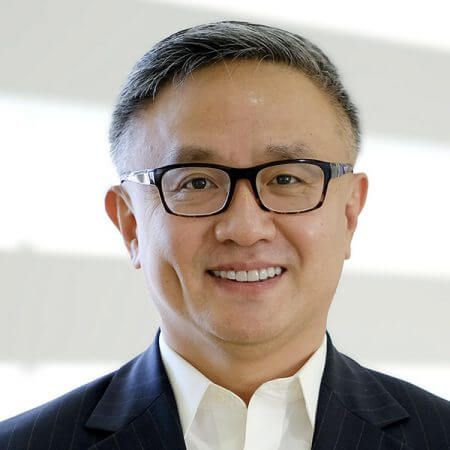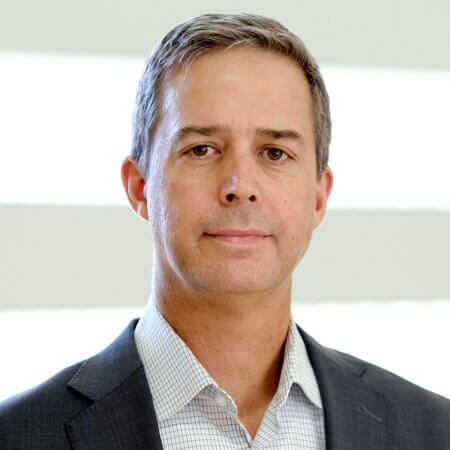Thornburg International Equity Fund
Overall Morningstar Rating among 651 Foreign Large Blend funds, based on risk-adjusted returns for class I shares, using a weighted average of the funds three-, five-, and ten-year ratings: respectively, 5 stars, 5 stars and 5 stars among 651, 615 and 425 funds, as of 31 Mar 2025.
Portfolio Managers
Better World and International Equities: Mundane is Undervalued
Portfolio Managers Brian Burrell and Joe Salmond believe unappreciated stability provides opportunities for investors in international equities and diversification.
Thornburg International Equity Fund
Craig Blessing: Thornburg, we pursue a bottom up, high conviction approach to international equity investing. We spend most of our time looking for and evaluating opportunities in individual companies. Joining me today are Brian Burrell and Joe Salmond, managing directors and members of the International Equity Portfolio Team. So, as we look forward into 2024, how are we thinking about and positioning in our portfolios for what we think might be coming?
Brian Burrell: Well, if you look at the Thornburg Better World Fund, you’ll see our three-basket allocation is a little bit different than the past. So, you know, as a reminder, we have your basic values, some of your cyclicals, which have a more volatile earnings stream, your consistent earners, which kind of steady compounders, and then you exciting emerging franchises which are on the cusp of accelerating earnings in new markets often.
We spend most of our time looking for and evaluate rating opportunities in individual companies. Joining me today are Brian Burrell and Joe Salmon, managing directors and members of the International Equity Portfolio Team. So as we look forward into 2024, how are we thinking about and positioning in our portfolios for what we think might be coming
Well, if you look at the Thornburg Better World Fund, you’ll see our three best get allocation is a little bit different than the past. So, you know, as a reminder, we have your basic values, some of your cyclicals, which have a more volatile earnings stream, your consistent earners, which kind of steady compounders, and then you exciting emerging franchises which are on the cusp of accelerating earnings in new markets often.
And if you look at where the Better World Fund is today, we’re a little bit heavier into those consistent earner companies. We’re finding opportunities where steady is not being valued as such because people are excited about new growth themes. So we’re finding attractive valuations in the realms of health care, consumer staples and so on.
I think, you know, something is as mundane as a railroad, for example. So if you look at Canadian Pacific, this is a company which just merged with Kansas City Southern, creating your only trans North America railroad. Go across Canada through the United States and down into Mexico, where a lot of this nearshoring and reshoring is occurring.
This one line is quite powerful, not only from in a mission standpoint. You know, if you switch from a truck to a train load, you’re cutting your emissions. But now with this being a single line you’re actually getting from Chicago to the industrial heartland of Mexico faster on a train than you were on a truck. So, this is a powerful value proposition. And what’s kind of boring, you know, a railroad with some of these lines built 100 plus years ago, but where there’s exceedingly becoming a great earnings power acceleration drivers, as we start to reshore, bring a lot of production. And those goods need to move on that rail line.
Joe Salmond: And then just on the international equity side, I think it’s a little more at our traditional blend of 40% basic value, 40% emerging franchise and then some opportunistic investments in the emerging franchise.
Part of the baskets. And I think it reflects a lot of the same themes that the Brian is talking about. And it’s just maybe, you know, there are slightly different types of companies that we tend to own there, but it comes back to this being in the core, being nimble. We think there’s a lot of uncertainty in the world and we want to be positioned to protect for that and be able to react without making any huge calls on unknowable things.
And I think we continue to just look for good, solid companies that are doing the right thing. There’s a lot of valuation opportunities and in that basic value up through the consistent earnings side of things that we think minimize the risk we’re taking but give a lot of upside opportunity. And I think there’s that will continue to be kind of our thinking is to be positioned for change and risk while taking a few calls on the exciting themes in the world but not getting carried away by it.
Craig Blessing:. None of these opportunities that we have talked about in the companies we’ve talked about are normally available to investors who are investing only in US funds or U.S. index funds. Am I right?
Brian Burrell: It’s true. Yeah. I think, you know, with a portfolio 50 or 60 names, we’re really zeroing in on where earnings are inflecting positively and where that’s not appreciated by the market. So, you can’t look at the index, which often contains about 2000 companies. But if you really hone in on where the biggest change or the stability that is in appreciated is not value by that market, by the market, that’s where we’re going to be positioned in the portfolio.
Craig Blessing: And if we had an investor and we do have a lot of clients who are probably have been very overweight the US and have benefited and might be now thinking about rebalancing or moving back a little bit towards international. Is that type of investment vehicle, say international equity or better world, the right type of investment for them to diversify internationally?
Joe Salmond: So what I’d maybe point to is just the opportunity with kind of that high conviction 50 name, give or take portfolio is when you look at somewhere like Europe, which we talked about, for example, as a whole, it’s exposed globally, but some of those companies are exposed to bad themes that you wouldn’t want to own in your index.
Others are exposed to wonderful themes, but you’re getting the discount either way. If you’re just owning the broad index, you’re getting the good and the bad and it balances out and there’s probably some validity to the discount. But if you could go in and selectively pick the good parts out with active stock selection, I think there’s really good wins to be had in there that give you a lot of the opportunities maybe of what you’re used to in the US that give you some diversification in some cheap valuations.
Brian Burell: Diversification is your only free lunch. And we’ve seen the dollar be really strong over the past few years and we’re entering a period where the Fed is probably more biased to cut. That’s a good set up for international currencies. So I guess as we’re looking at the world in terms of opportunities, reallocating some of those gains you’ve had from the US into some of these strong companies, international markets that aren’t valued as richly as the US that makes sense to us.
Craig Blessing: Well, and to your point, isn’t it something like 40 to 50% of either International’s underperformance or outperformance to US investors have stories during periods where international has been outperforming or underperforming has come from dollar appreciation or dollar depreciation, am I right?
Brian Burrell: It’s true, and you never know when the dollar is going to turn. But what you can do is you can position your portfolio to take advantage of when that might occur by picking strong companies that are going to be resilient through cycles. And when that that change does happen, you’re positioned for it ahead of time.
Craig Blessing: Perfect. Well, thank you, Brian. Thank you, Joe. And thank you to all of you for for listening today.
Important Information:
The views expressed are subject to change and do not necessarily reflect the views of Thornburg Investment Management, Inc. This information should not be relied upon as a recommendation or investment advice and is not intended to predict the performance of any investment or market.
Investments carry risks, including possible loss of principal. Additional risks may be associated with investments outside the United States, especially in emerging markets, including currency fluctuations, illiquidity, volatility, and political and economic risks. Investments in small- and mid-capitalization companies may increase the risk of greater price fluctuations. Investments in the Fund are not FDIC insured, nor are they bank deposits or guaranteed by a bank or any other entity.
Top ten holdings for the Better World International Fund: https://www.thornburg.com/product/mutual-funds/fbwi/?class=I#portfolio
Top ten holdings for the International Equity Fund: https://www.thornburg.com/product/mutual-funds/fiv/?class=I#portfolio
Diversification does not assure or guarantee better performance and cannot eliminate the risk of investment losses.
The Better World International Fund’s adherence to its ESG ratings process may affect the Fund/Strategy’s exposure to certain companies, sectors, regions, and countries and may affect the Fund’s performance depending on whether such investments are in or out of favor. This process may result in the Fund foregoing opportunities to buy certain securities when it might otherwise be advantageous to do so, or selling securities for ESG reasons when it might be otherwise disadvantageous for it to do so. Additionally, the process may result in incorrectly evaluating a company’s commitment to positive ESG practices and may result in investment in companies with practices that are not consistent with the Fund’s aspirations.
Investing in an ESG-focused strategy does not assure or guarantee better performance and cannot eliminate the risk of investment losses.
Funds invested in a limited number of holdings may expose an investor to greater volatility.
There is no guarantee that the Fund will meet its investment objectives.
The Fund may invest in shares of companies through initial public offerings (IPOs). IPOs have the potential to produce substantial gains and there is no assurance that the Fund will have continued access to profitable IPOs. As Fund assets grow, the impact of IPO investments on performance may decline.
Any securities, sectors, or countries mentioned are for illustration purposes only. Holdings are subject to change. Under no circumstances does the information contained within represent a recommendation to buy or sell any security.
Environmental, social and governance (ESG) criteria are a set of standards for a company’s operations that socially conscious investors use to screen potential investments. Environmental criteria consider how a company performs as a steward of nature. Social criteria examine how it manages relationships with employees, suppliers, customers, and the communities where it operates. Governance deals with a company’s leadership, executive pay, audits, internal controls, and shareholder rights.
Basic Value: Companies generally operating in mature industries and which generally exhibit more economic sensitivity and/or higher volatility in earnings and cash flow.
Consistent Earners: Companies which generally exhibit predictable growth, profitability, cash flow and/or dividends.
Emerging Franchises: Companies with the potential to grow at an above average rate because of a product or service that is establishing a new market and/or taking share from existing participants.
Before investing, carefully consider the Fund’s investment goals, risks, charges and expenses. For a prospectus or summary prospectus containing this and other information, contact your financial advisor or visit thornburg.com. Read them carefully before investing.
Thornburg mutual funds are distributed by Thornburg Securities LLC.
Performance
Returns
(As of 31 Mar 2025)Fund Fees
(As of 1 Feb 2025)Hypothetical Growth of $10,000
(As of 31 Mar 2025)Distributions
(As of 19 Dec 2024)Fund Facts
(As of 31 Mar 2025)Characteristics
Portfolio
(As of 31 Mar 2025)Risk & Return Profile
(As of 31 Mar 2025)Portfolio
Top Holdings
(As of 28 Feb 2025)Exposure Breakdown
(As of 31 Mar 2025)Portfolio Managers

Lei Wang, CFA

Matt Burdett
More Insights

Investor Spotlight: The Municipal Bond Tax Exemption

International Equity: The Power of Global Diversification

A Time for Active Fixed Income

The Next Market Shock? Key Risk Factors Investors Must Watch

Fixed Income in Focus—Yield Potential Amid Narrow Spreads

